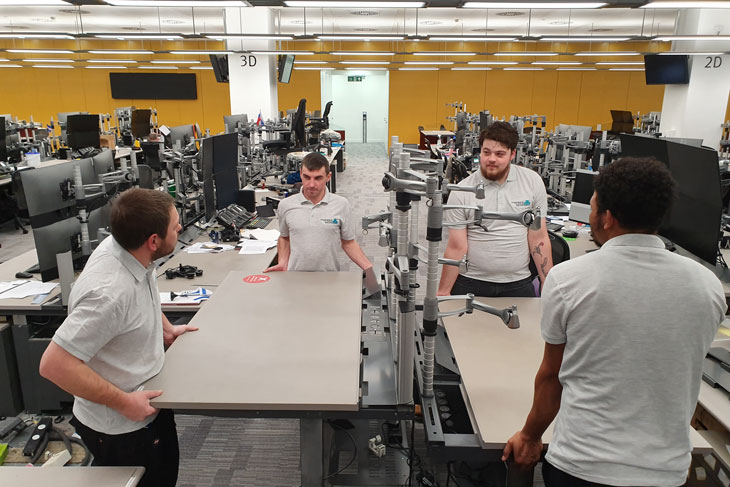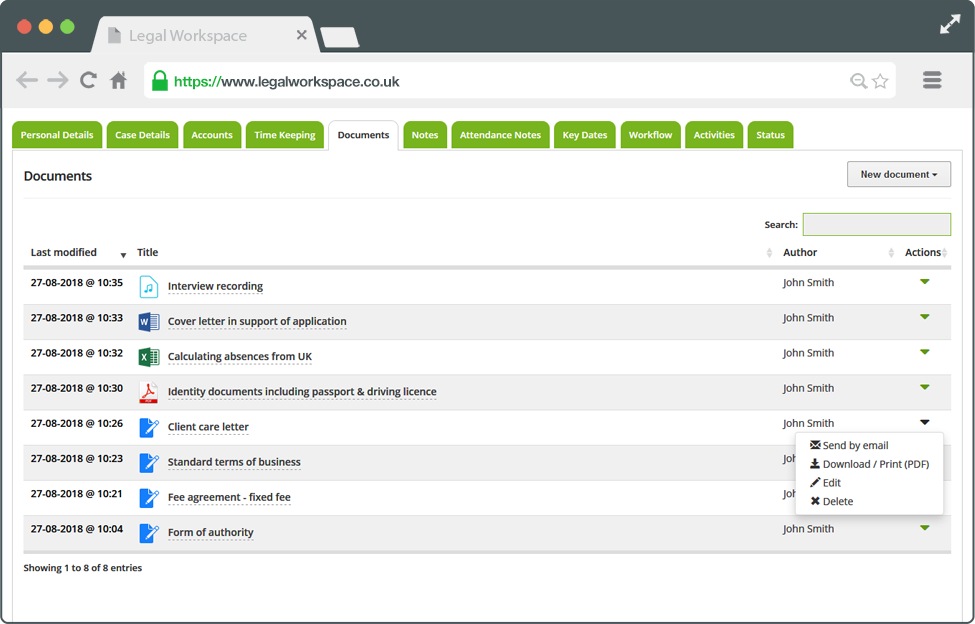Top Suggestions On Deciding On Moving Companies
10 Tips For Office Relocation Based On Years Of Experience And Expertise In Sustainable And Social ValueWhen relocating an office, it's important to consider the environmental impact and the community by taking sustainability and social impact into the process. This reduces environmental impact and helps to achieve CSR-related goals. Here are 10 strategies you can leverage knowledge and experience in the field of sustainability and social impact when moving an office:
1. Plan for an Eco-friendly Relocation
Develop a clear relocation plan that has sustainability as its primary goal. Create clear sustainability targets that include reducing carbon emissions in the process, reducing waste, and sourcing environmentally friendly materials. Utilize this plan to guide your relocation efforts.
2. Find ethical and local suppliers
Work with local suppliers and service providers that share your ideals of sustainability and social responsibility. This supports local businesses as well as reducing emissions from transportation. Also, it encourages fair-trade practices.
3. Implement a Zero Waste Strategy
Make an effort to be a zero-waste person by recycling, reusing and repurposing as much as possible. You could repurpose old furniture, donate unwanted objects to local charities or reuse electronic waste in a responsible manner. Be sure that all packing items are recyclable or reusable.
4. Conduct an Environmental Impact Assessment prior to moving
The assessment of the environmental impact is vital since it incorporates carbon footprint calculations and the energy consumption. Use these insights to optimize the moving process in order to lessen the environmental impact.
5. Encourage Employee Engagement and Increase Awareness
Encourage employees to be involved in initiatives to promote sustainability that relate to the move including waste reduction recycling drives, recycling campaigns or other energy-saving strategies. Educating employees on sustainable practices can help create an attitude of accountability and commitment to social value.
6. Optimize Transportation and Logistic
Vehicles that are fuel efficient can cut down on carbon emissions and fuel consumption. Consider using an electric vehicle or partnering with a logistics provider that has green certifications. When possible, combine shipments to minimize the number of trips.
7. The plan for energy efficiency in the New Office
Ensure the new office location has energy efficiency. It could be feasible to utilize energy-efficient HVAC, LED lighting and smart building techniques. Take into consideration office layouts and designs which maximizes natural light and reduces the need for artificial lighting.
8. Green Building Standards: How to Certify
Consider certifying your office space with green building guidelines, like LEED or BREEAM. This demonstrates a commitment towards sustainability, and help save money over the long term by reducing energy consumption.
9. Create a Social Value Strategy
Develop a CSR-related strategy in accordance with the overall objectives of the business. This might include donating office furniture or supplies to local communities, volunteering at the time of relocation, and providing internships for local teens in planning, logistics, and planning.
10. Monitor the progress, measure and report on sustainability-related outcomes
Track key sustainability metrics during the process of relocation, such as carbon footprint and waste diversion rates and social impact. The way you report to your stakeholders must be open and transparent and focused on the lessons learned and the successes. Make use of these data to improve future relocations.
Conclusion
Incorporating social value knowledge into office relocations, companies can make a positive contribution to the environment. This is not only in line with CSR but also improves the brand reputation and employee satisfaction, resulting in a sustainable and ethical business. See the most popular storage recommendations for blog tips including office and furniture, furniture in an office, herman miller aeron 2nd hand, chair office herman miller, herman and miller chair, aeron second hand, office furniture solutions, aeron chair second hand, office table chairs, used office furniture for sale and more.

Security And Compliance: Ten Suggestions For Document Management System
Security and compliance is a critical aspect of any document Management System. A properly designed DMS can provide strong security features as well as ensure compliance with industry regulations and standards, such as HIPAA or ISO standards to safeguard sensitive information. Here are ten tips to help you ensure security and compliance in your DMS.
1. Implement Role-Based Access Control
Make sure whether the DMS includes Role-Based Access Control, which restricts access to sensitive files in accordance with roles and responsibilities. This minimizes the risk of unauthorised access and makes sure that only authorized users have access to edit, view, or remove documents.
2. Use encryption for information at both in transit and at rest.
Utilize strong encryption techniques to secure documents during transit or at the rest of their journey. This can prevent access by unauthorized persons even if the documents get accessed.
3. Make sure to check Industry Regulations
The DMS should be in compliance with regulations that are specific to the industry, like HIPAA, CCPA or FINRA. In order to ensure compliance with regulatory requirements the system must include features like consent management for data anonymization, audit trails and data retention policies.
4. Keep detailed audit trails and activity logs
The DMS must keep audit trails that record every activity of users including document creation, modification, and deletion. These logs are essential for monitoring usage, detecting unauthorised activities, and ensuring that the DMS is accountable should there be a security breach.
5. Incorporate Multi-Factor Authentication (MFA)
To provide an additional layer of protection, enable Multi-Factor Verification for DMS Access. MFA makes it more difficult to access websites that aren't authorized through the combination of something that users already know (like an email address) with something they have (like an iPhone) or are (like finger prints).
6. Update and patch your DMS regularly
Update the DMS frequently to include the most recent security patches. Staying current with updates can help mitigate vulnerabilities which could be exploited.
7. Implement Data Loss Prevention measures
Data Loss Prevention (DLP) tools can be integrated to the DMS in order to protect and monitor sensitive information. DLP tools can identify and stop potential data breaches.
8. Document Retention and Disposal Policy
Create automated document retention and disposal guidelines in the DMS to meet regulations and legal requirements. It is important to make sure that documents are kept for the necessary time and disposed of securely when no longer required.
9. Secure Remote Access and Mobile Device Management
As remote work is becoming more widespread, it is important to ensure that your DMS integrates with Mobile Device Management. It safeguards sensitive documents that are accessible via mobile devices by enforcing protocols such as remote wiping, encryption of devices, as well as secure VPN.
10. Conduct regular security audits and also compliance inspections
Perform regular security audits and compliance tests to identify weaknesses and gaps in DMS. Periodic assessments help ensure the system is in compliance with changing regulations and is protected against new and emerging threats.
Conclusion
Prioritizing data security and compliance, businesses can protect sensitive information and ensure data integrity, while staying clear of financial and legal penalties. A DMS that has robust security capabilities and compliance features provides peace of mind and increases confidence among stakeholders and clients. It also helps create the environment by providing a more reliable and secure document management system. See the recommended document management system blog for blog recommendations including management software workflow, document management system online, document file system, automated workflow solutions, management software workflow, store medical records, best document management system, archiving system, document archiving system, records storage systems and more.

Ten Suggestions For International Relocation Companies Based On Their Reputation, Experience, And Compliance
When choosing an international relocation firm, reputation as well as experience and conformity are the most important aspects to be considered. These elements help to ensure that an international relocation company will provide you with services that are reliable and efficient, and can deal with the complexity of relocation across borders. Here are ten guidelines to help you evaluate and choose a company that can handle international relocations according to the criteria mentioned above:
1. Research Company Reviews, Testimonials and Customer Reviews
There are cases studies and testimonials online. Positive feedback from customers who have relocated in similar circumstances could indicate the reliability of the business.
2. Verify Industry Certifications and Memberships
Verify if a company is certified and a member of reputable organizations, like FIDI Global Alliance/European Removal Association (ERA) or has relevant certifications for the industry. These affiliations show that the company adheres to standards of the industry and practices.
3. Assessing Years of Experience with International Relocation
Find out the expertise of the firm in managing international moves. An organization with a lot of experience will be more equipped to deal with the complex logistics and regulations pertaining to customs that are associated with international moves.
Review Case Studies of successful relocations
Ask for case studies as well as samples of international relocations that have been managed by the firm. It helps you evaluate the company's ability to manage various aspects of an international move from the destination service to logistics.
5. Inspection of Compliance with International Regulations
Make sure that the company is compliant with international regulations, as well as the local laws of both the source and destination country. Included are any applicable visa, customs, immigration or other legal regulations.
6. Verify the insurance coverage of your policy.
Be sure that the company is covered by extensive insurance for international relocation and that their claims procedure is transparent. A good insurance policy protects your possessions and gives you assurance in the event damages or losses.
7. The quality of customer service
Assess how the company can provide customer support. To manage the difficulties of international relocations, it's essential to have a person to contact who is able to provide clear communication and respond promptly.
Examine the Global Network of Partnerships and their Global Network
Think about the networks of agents both local and international. A strong network of global partners as well as local agents can improve the efficiency and reliability for the relocation, as it allows for the smooth coordination and support among the different countries.
9. Make sure you're in compliance with professional and ethical standards.
Verify that they follow the highest ethical and professionalism standards. Transparent pricing, fair business practice and the respect of confidentiality are all components of this. Utilizing ethical business practices can lead to a positive and trusting relocation experience.
10. Get Transparent and Clear Prices
Get detailed quotes outlining the total cost and services involved to your relocation. Transparency in pricing can prevent unanticipated costs and helps ensure that you are aware of what is included in the price. Comparing quotes from different companies will help you get the best price.
The conclusion of the article is:
For a successful international move it is vital to select a relocation company based upon their reputation, experience and their compliance. Conducting research on reviews, reviewing certifications, assessing experiences and ensuring that the company is in compliance with regulatory requirements will help you select the right relocation company to ensure your move is handled professionally and efficiently. This will minimize the stress and hassles. Take a look at the top international relocation companies examples for blog tips including crown moving services, international relocation, house removalists, moving service melbourne, international relocation, moving relocation services, removal company sydney, moving relocation, business relocations, movers melbourne and more.
